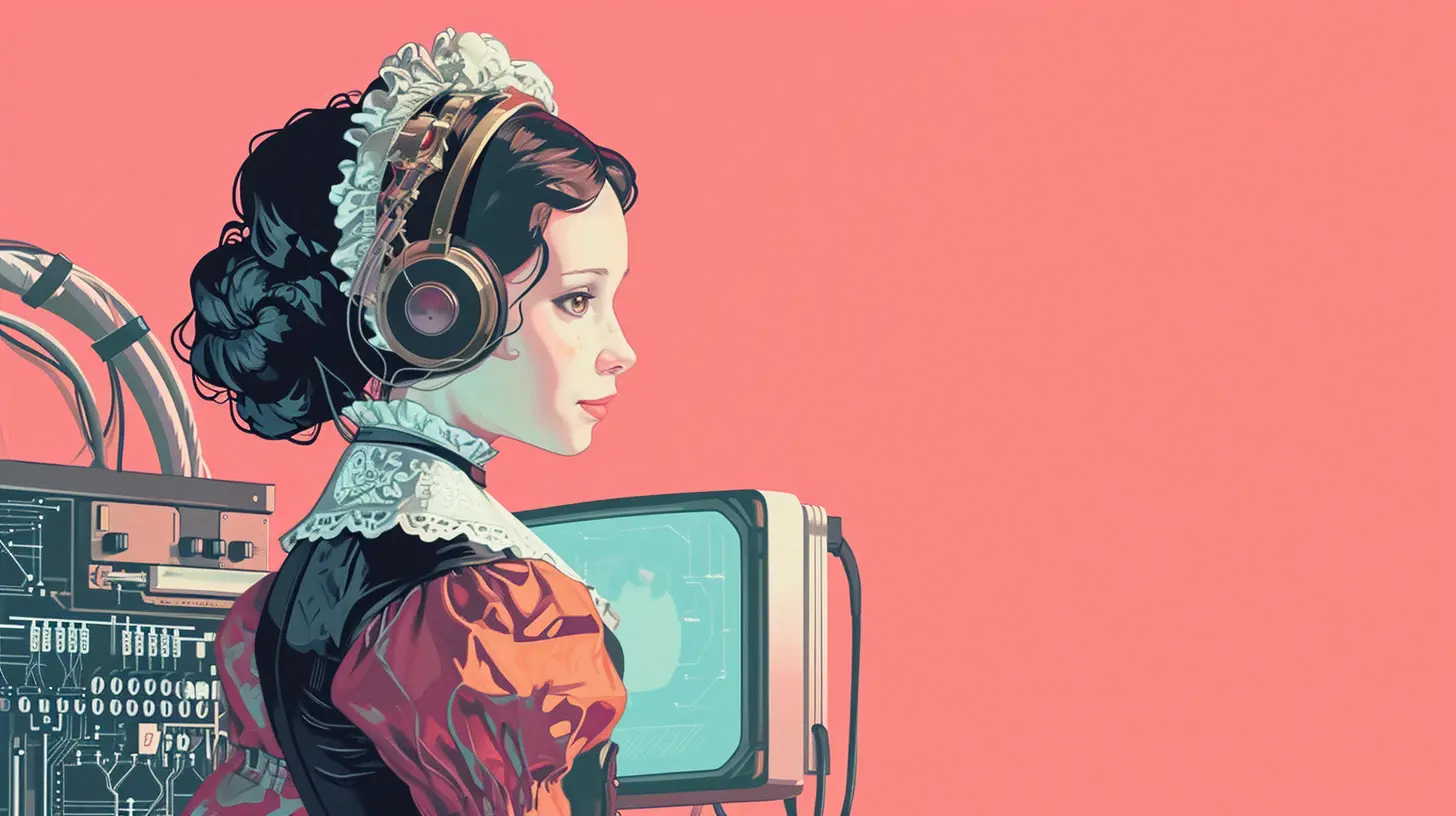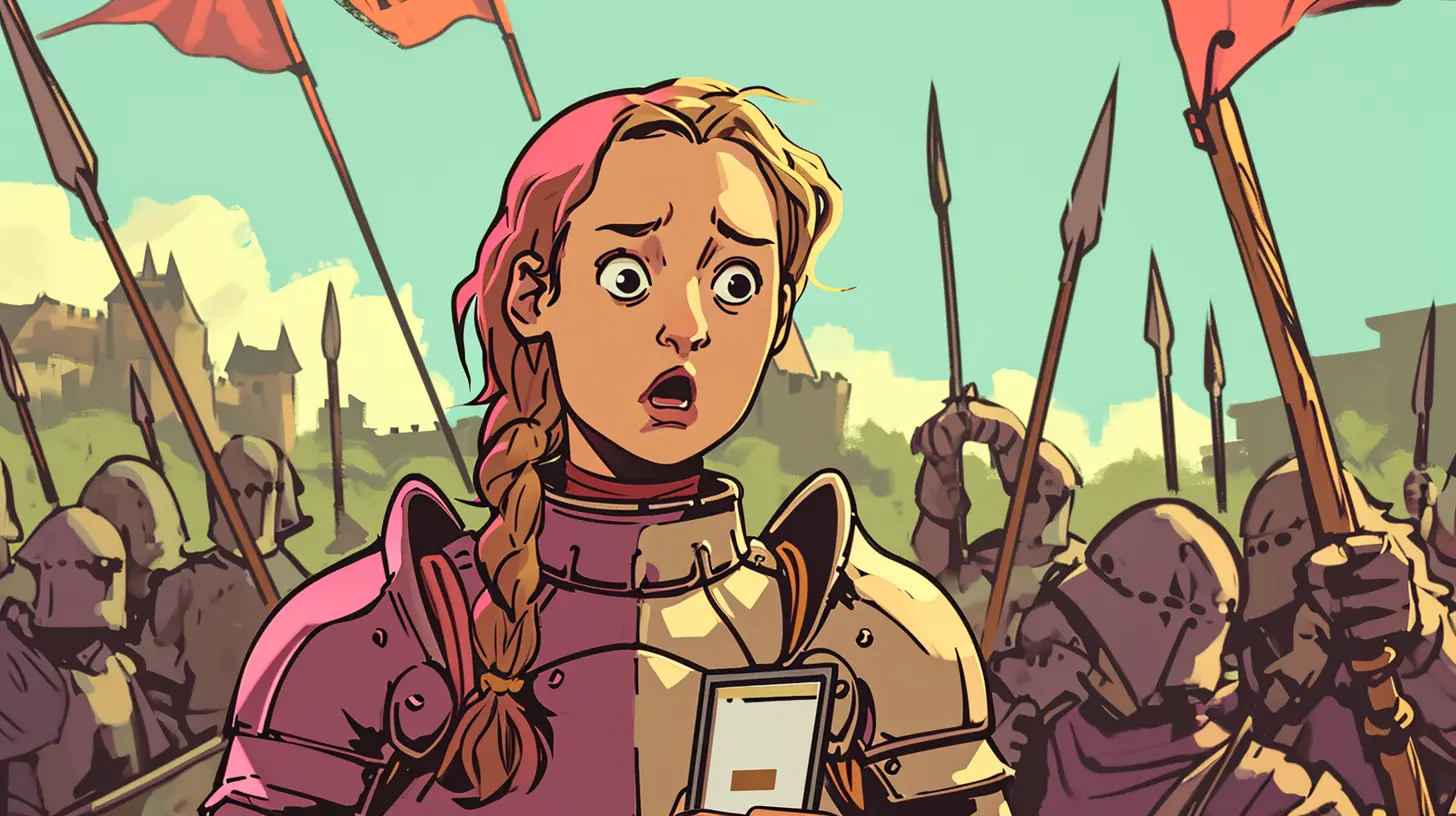In a parallel universe, where the hum of laptops resonates through the hallowed halls of history, we find none other than William Shakespeare, the illustrious bard, embarking on a curious journey through the world of technology. Envision the man who gave us Hamlet and Macbeth, now swapping his quill and ink for a sleek laptop, his fingers dancing over a keyboard rather than scratching on parchment.
The Digital Globe Theatre
Welcome to the Globe Theatre 2.0, where Shakespeare’s timeless classics meet the digital age. Gone are the wooden stages and open skies, replaced by virtual platforms where each actor beams in from their own home. Imagine a production of “Romeo and Juliet” where our star-crossed lovers woo each other over video call, their passionate speeches occasionally interrupted by connection issues or accidentally muted microphones.
In this new era of theatre, stage directions take on a whole new meaning. “Exit, pursued by a bear” now involves creative use of virtual backgrounds, perhaps with a poorly animated CGI bear chasing the actor across the screen. Meanwhile, the famous balcony scene in “Romeo and Juliet” gets a modern twist — Juliet’s balcony is now just a cleverly positioned webcam, and Romeo’s heartfelt declarations are delivered through a chat window.
But what about the audience? The groundlings who once stood for hours, rain or shine, to hear the Bard’s words, are now cozy at home, reacting with likes and heart emojis. Instead of heckling from the pit, they’re leaving comments in the live chat, occasionally sparking emoji battles during particularly dramatic scenes.
And let’s not forget the occasional technical difficulties. A dramatic monologue might be rudely interrupted by the dreaded “Your internet connection is unstable” message, or the Ghost of Hamlet’s father might freeze mid-revelation, much to the frustration of our Danish prince.
In this digitised Globe Theatre, Shakespeare himself takes on the role of a director-cum-IT specialist, troubleshooting technical issues while trying to maintain the artistic integrity of his plays. It’s a blend of the old and the new, where Elizabethan verse meets modern technology in a spectacle that’s as entertaining as it is anachronistic.
Shakespeare’s Writing Process Goes Digital
Imagine the Bard, the man who penned some of the most beautiful lines in the English language, now sitting in front of a glowing screen, his fingers poised over a modern keyboard. The transition from quill and ink to typing and text editing software is not without its humorous hiccups. He decides to use a speech-to-text application to dictate his latest play. The app, however, is not quite attuned to the nuances of Elizabethan English. “To be or not to be, that is the question,” is transcribed as “2B or knot 2B, dat is the ?” leaving our poor Bard both baffled and amused.
Then comes the challenge of using a modern word processor’s grammar checker. Shakespeare’s creative use of language is met with a relentless onslaught of red underlines and correction suggestions. “Consider simplifying this sentence,” the software advises, completely missing the poetic charm of phrases like “The slings and arrows of outrageous fortune.”
Our playwright decides to venture into online forums for some quick feedback on his latest sonnet. Alas, the internet is not quite ready for his style. “TL;DR,” comments one user under his 14-line masterpiece. Another suggests, “Maybe add some emojis to make it more relatable? 🤔👑💔”
As Shakespeare navigates the peculiarities of digital writing tools, he finds himself both frustrated and fascinated by this new world. The ease of editing and revising is magical, but the soul of his words sometimes gets lost amidst spellcheck suggestions and the character limits of social media posts.
In this humorous exploration, we see the greatest writer in English history grappling with the blessings and curses of technology. From autocorrect mishaps to the struggle of conveying deep emotions in a Tweet, Shakespeare’s journey through the digital landscape is as comedic as it is enlightening.
Social Media and the Bard
In this digital reimagining, our beloved Shakespeare isn’t just a playwright; he’s a social media influencer. With his ruffled collar and Elizabethan swagger, he navigates the realms of Twitter, Instagram, and even TikTok with a mix of curiosity and old-world charm.
On Twitter, @Will_Shakespeare becomes famous for his witty 280-character summaries of his plays. “Star-crossed lovers meet. Family drama ensues. Ends badly. #RomeoAndJuliet #TragicLove” reads one of his tweets, garnering thousands of retweets and heart emojis. His Twitter threads explaining the nuances of iambic pentameter in layman’s terms become the stuff of legend.
Instagram sees Shakespeare embracing his inner photographer. His account is a mix of behind-the-scenes shots from his plays, scenic quill-and-ink setups, and the occasional Elizabethan meal. His captions, a blend of poetic verses and modern slang, capture the hearts of literature and selfie enthusiasts alike.
And then there’s TikTok. Who would have thought that the Bard would take to TikTok like a duck to water? His account features short videos of him acting out famous scenes, collaborating with popular creators who lip-sync to his most famous soliloquies. A video of him teaching the ‘To be or not to be’ speech in sign language goes viral, sparking a trend.
But it’s not all smooth sailing. Shakespeare finds himself in the middle of a playful online feud with fellow playwright Christopher Marlowe (@Kit_Marlowe). They exchange barbed tweets and create competing TikTok challenges, much to the amusement of their followers. The banter, a mix of Elizabethan insults and modern meme culture, becomes a highlight of the literary corner of the internet.
Through hashtags, filters, and viral challenges, Shakespeare discovers a new way to connect with his audience. His timeless tales are now told in snippets and stories, reaching a new generation of digital natives who hang onto his every tweet and TikTok.
Online Reviews of Shakespeare’s Plays
In the era of digital Shakespeare, his plays not only grace the virtual stage but also face the ultimate test of modern times: online reviews. Each performance, now streamed live or available on-demand, garners feedback from the global audience, ranging from the insightful to the hilariously absurd.
On Yelp, “Macbeth” gets a four-star review with the comment, “Loved the witches, super spooky! But why all the blood? Also, was hoping for a happy ending. 😕” Meanwhile, “A Midsummer Night’s Dream” gets a confused three-star review: “Weird mix of a rom-com and a fantasy. Plus, the donkey guy? Kinda freaked me out. LOL.” Google Reviews features a lengthy critique of “Hamlet,” titled “To See or Not to See.” The reviewer writes, “Hamlet’s monologues = mind-blowing 🤯. But Ophelia deserved better. Also, way too many skull emojis in the chat during the graveyard scene. #RespectTheDead.” Even “Romeo and Juliet” isn’t spared. A teenager rates it two stars on a streaming platform, commenting, “Ugh, this is like every other teen drama but with fancy talk. And why do they make such a big deal about a kiss? Haven’t they heard of dating apps?”
As the reviews pour in, Shakespeare finds himself both bemused and bewildered by the candidness of his virtual audience. The directness of the feedback is a far cry from the polite applause of the Globe Theatre, yet there’s a certain charm in reading the unfiltered thoughts of viewers from around the world.
Shakespeare Meets AI - The Ultimate Collaboration
In the heart of this digital era, William Shakespeare, the timeless playwright, finds an unusual collaborator: Artificial Intelligence. This section imagines a humorous and somewhat surreal interaction between the Bard and modern AI technology. Shakespeare, ever curious, decides to feed the plot of “Othello” into an AI story generator. What comes out is a space opera, with Othello as a valiant interstellar captain and Desdemona an alien princess. Iago, meanwhile, is a malfunctioning android with a penchant for plotting. Shakespeare is both amused and horrified by this galactic reinterpretation of his tragedy.
Next, he tries a dialogue with an AI assistant, hoping for an insightful literary discussion. The conversation quickly turns comical as the AI struggles to interpret Shakespeare’s Elizabethan English, responding to “What light through yonder window breaks?” with weather reports and suggestions to repair broken windows.
Shakespeare also dabbles with AI for predictive text while crafting his sonnets. The AI, trying to assist, suggests contemporary phrases and slang. A sonnet starts with “Shall I compare thee to a summer’s day?” and ends with “Cuz you’re lit AF 🔥.”
In a playful twist, Shakespeare inputs famous lines from his plays into an AI translator to see how they would fare in different languages. The results are a mix of accurate translations and comical misinterpretations, proving that some nuances of Shakespeare’s language are indeed lost in translation.
Digital Curtain Call 🎭💻🌐🖋️
As we draw the curtains on this imaginative exploration of Shakespeare in the realm of technology, we’re left with a delightful tapestry of ‘what-ifs’. From virtual performances at the Digital Globe Theatre to his witty social media presence and the hilariously unpredictable AI collaborations, Shakespeare’s journey through the digital landscape has been nothing short of a tragedy.
This whimsical journey reminds us that while technology can change the way we experience and interact with literature, the essence of storytelling, the power of words, and the human connection they foster remain constant. Shakespeare, with his quill or keyboard, continues to captivate, whether through a sonnet on a scroll or a tweet on a timeline.
As we bid adieu to our digital-age Shakespeare, we can’t help but imagine him, with a twinkle in his eye, contemplating his next masterpiece on a tablet, perhaps musing, “All the world’s a screen, and all the men and women merely players with Wi-Fi connections.”
How would other historical figures fare in the world of social media? Their stories, like Shakespeare’s, are ripe for a modern retelling, where History Meets Hashtag.





Leave a comment